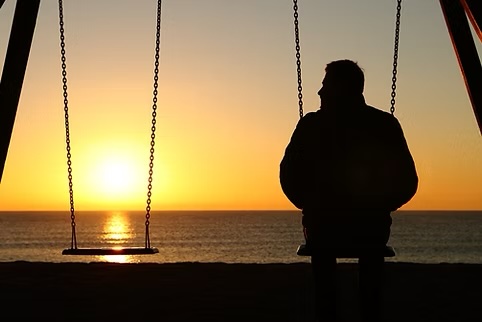“Love and grief come as a package deal. If you love, you will one day know sorrow.”
― David Kessler, Finding Meaning: The Sixth Stage of Grief
Grief is our own instinctive response to loss. Even the most subtle losses in our lives can trigger a sense of grief. Grief is the emotional suffering we feel when something or someone we love is taken away. Grieving is a uniquely individual experience; there’s no right or wrong way to grieve and it’s not a linear journey. It’s not a series of stages or timelines and each of us will experience grief in our own unique way. The pain felt when we’re grieving can often feel overwhelming and may lead us to experience all kinds of difficult and unexpected emotions and physical symptoms.
At some point in our lives, we will all face losing someone who is very dear to us. There are very few of us, however, who will be fully prepared for the overwhelming emotions which accompany a bereavement and the more sudden it is, the more overwhelming these emotions can feel. Grief and mourning are not just reserved for those of us who have lost someone who has died. It can also be keenly felt when we have lost something significant including:
· Divorce
· Miscarriage
· Breakups
· Stillbirth
· Infertility
· Losing a job
· Separation
· Loss of a friendship
· Ageing / Retirement
· Serious Illness
· Conflict
· Moving away or out of the family home
· Financial Setbacks/losses
Whether it’s the loss of a loved one, the ending of an intimate relationship or any other serious setback, grief can affect us all in different ways and with varying intensity. The ending of a marriage or romantic relationship can give rise to feelings and behaviours that are analogous to grief and loss. Even though a person hasn’t died, there has nonetheless been an ending of something special and significant, thus our feelings and experiences can feel just as intense. When a marriage or significant romantic relationship ends, very often it’s connected to the loss of plans. Plans for the future are lost; possibly regarding what the relationship was going to be or who you were because of the relationship (e.g., from couple to suddenly single).
Even if our relationship was abusive or if we were unhappy in it, or if for some reason we believed that ending the relationship was the right thing to do at the time, it doesn’t mean that we won’t feel a sense of loss connected to the relationship ending. It’s entirely normal to feel a sense of loss and to experience the grief of a close relationship ending, regardless of who was the one to end it. Adjusting to and transitioning to our new life is part of working through our grief, in the present and towards the future without our significant other.
One of the most difficult things we may ever have to do is grieve the loss of someone who is still alive. Much of our lives is spent anticipating events that are about to happen; these can be both happy and sad events. When we learn that someone close to us doesn’t have long to live, we begin to grieve the anticipated loss of that person, even though they are still alive. This process is known as anticipatory grief and can be an extremely onerous part of the grief journey. What’s important to know, is that both the person who is dying and those who will be left behind will be grieving during this time.
When the loss of a loved one is abrupt, sudden, and unexpected, this is known as traumatic grief. Mass violence, terrorism, plane crashes, murder, fatal accidents, and suicide are some of the ways in which grief can be traumatic for the survivors and families of those who have tragically lost their lives. With traumatic grief, we are not merely mourning the loss of a loved one, we are left distraught and shattered by it. A loved one leaves the house to go about their normal daily activities, perhaps to go to work, out to dinner or to see a movie and they never return.
So, what then are the emotions and experiences that are associated with grief and loss?
· Shock
· Feeling numb as though in a daze
· Denial
· Feeling abandoned
· Feeling overwhelmingly sad
· Crying a lot, sometimes uncontrollably or feeling guilty because you aren’t able to cry
· Physical pain and/or tension
· Slowed thinking / mental confusion
· Difficulty making decisions
· Inactivity or difficulty stopping activity
· Nausea
· Guilt
· Loneliness
· Anger
· Anxiety
· Irritability
· Fear
· Depression
· Disturbed sleep patterns
· Longing and ‘searching’ for our loved one
· Having to comfort others who are also grieving
· Physical exhaustion
· Loss of interest in activities enjoyed previously.
· Talking to the deceased loved one
· Marital or relationship stress
· Impatience with others who are grieving the same loss due to different ways of feeling / expressing their grief.
· Isolation/withdrawal from others
Grief can be exhausting, confusing, and confronting, feel surreal to us, and leave us feeling lost and bewildered. It can cause us to feel the most excruciating physical pain in our body that feels as though it might be enough to kill us. Grief can keep us in our bed for days on end. It can also cause us to feel separation anxiety so extreme, that it feels as if we’re losing our minds.
A major loss may make us feel alienated from others; it may make us feel as if we’re in a land of strangers, cut off from everything that made sense to us in the past. Grief can also cause us to say hurtful and insensitive things to others that we don’t really mean and that we may later have cause to regret.
In this interview, grief expert, Julia Samuel, shares tips on how to grieve in a healthy way https://youtu.be/Q1VQzxXW5FI?si=IHZ9NSsVGhkp6jAQ
Some helpful strategies fto cope with grief and/or loss:
Be patient with yourself:
Grief can disorient you and make you feel exhausted, so don’t expect too much of yourself, especially in the early days of your loss.
Be gentle with yourself:
Grief can make you feel wounded and raw. It can strip you bare, leaving you open and exposed. Don’t be too hard on yourself; use a compassionate inner voice to help you get through your loss.
Keep your daily activities simple:
Give yourself time to gain equilibrium and strength before making any significant decisions. Leave things that aren’t a priority to a time when you’re feeling stronger.
Allow yourself time and space to grieve:
Take your time to work through the feelings and thoughts associated with your loss.
Create meaningful rituals:
Creating rituals will help you to find meaning in your life when you have lost your confidence and feel newly fearful in your previously ‘safe and predictable’ world.
Continue to do activities that you used to do together:
Celebrating special anniversaries in a meaningful way may help you to regain some feeling of control in your life as well as help you to cope with your loss.
Take a break from grieving:
You will need to recharge your batteries when you’re grieving because at times it can be overwhelming and exhausting. It’s quite OK to return to work, take up your hobbies or interests again and have some fun and relax while you’re still grieving. It will help you to navigate through the grief process in a more natural way; more aligned to how life was before you experienced your loss.
Seek support:
Support during the grieving process is best sought from people who are not judgemental and don’t tell you how to grieve. Sometimes people who have experienced a similar loss can be a great support to you. A trained counsellor will also have the expertise and experience to help guide you through your grief journey. https://sydneyhillscounselling.com.au/counselling-services/grief-and-loss/
Accept that life is going to feel topsy-turvy or even crazy for a while:
There are no shortcuts to grieving. You just can’t wish the pain away or hope that it will just disappear; you need to work through the pain of your loss gradually and accept that it will take time to move through all the various stages.
Practise intensive Self-Care:
This is never more important than when grieving a loss. When you feel lost and don’t know what to do, ask yourself, “What do I need to do to take care of myself right now?” Intuition will guide you to do what you need to do to take care of yourself. Ask yourself whether you may need to eat something or perhaps talk to someone, maybe take a shower or bath, or go for a walk. Whatever you feel you need to do; just do it
If you are experiencing the loss of someone you love following a death, or if you are mourning the loss of a relationship or something important in your life, please contact Sydney Hills Counselling today on (02) 9159-6277 for a confidential chat about how we can help you to come to terms with your loss. At present, we have temporarily halted face-to-face counselling appointments due to a large number of Covid-19 cases in the community, however, we are offering Telehealth sessions via Zoom, telephone counselling, and email counselling. Please contact us today to see how we can help you. Due to a recent increase in inquiries, contacting us via email at [email protected]rather than calling us, will ensure a timely response to your inquiry. You can also leave a voice message on (02) 9159-6277.
Copyright © 2025 Sydney Hills Counselling






